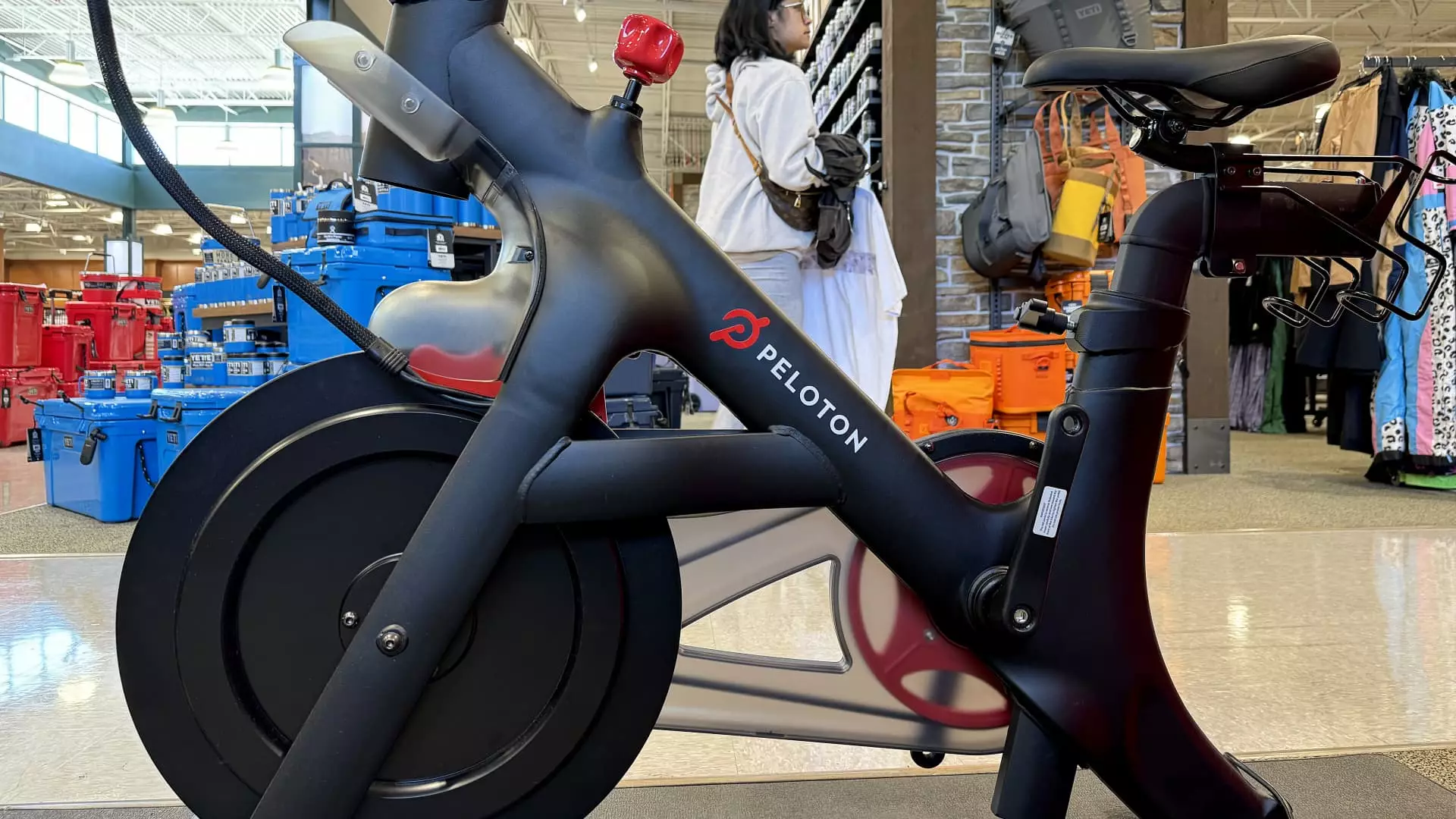In a bold move to recover from dwindling subscription numbers and growing inventory of unused equipment, Peloton has recently launched a resale marketplace known as Repowered. Their intention is rooted in necessity, capitalizing on the untapped potential of individuals who once purchased, but ultimately neglected their exercise equipment. This initiative raises critical questions about the authenticity of Peloton’s innovation: Are they genuinely committed to fostering a sustainable fitness community, or are they merely exploiting an unfortunate situation?
Peloton’s approach to facilitating a marketplace for used bikes and treadmills may appear advantageous on the surface, tapping into the current boom of resale culture. Those who have invested in high-end fitness gear often find themselves saddled with expensive machines that serve as nothing more than decorative items in their homes. Repowered aims to provide a remedy for both sellers, who can offload their unused products, and buyers, who can acquire quality equipment without breaking the bank. However, one must wonder whether this initiative genuinely benefits the consumer or if it’s more of a calculated business strategy veiled as a consumer-friendly service.
The Power Balance: Seller vs. Company
With 70% of the sale price going to the seller, Peloton may seem generous at first glance. Yet, it is vital to consider the remaining 30%. By retaining a significant chunk of the profits alongside a partnership with Archive, Peloton emphasizes its role not as a facilitator, but as a gatekeeper within this burgeoning marketplace. It raises concerns over whether such a model is prioritizing its financial interests over those of the users. In a world flooded with companies prioritizing profit at the expense of customer experience, one cannot help but question whether Peloton is treading the same path.
Moreover, while sellers benefit from a discount towards new equipment, the notion that this will stimulate new purchases is troubling. It can be argued that enticing users back into the cycle of continuous spending, rather than addressing the psychological barriers of exercise maintenance, is counterproductive to a healthy lifestyle. Peloton appears to be perpetuating a cycle of consumerism wrapped in wellness—encouraging individuals to buy more gear rather than fostering a durable relationship with fitness itself.
A Shift in Perspective
Repowered is clearly a challenging competitor to platforms like Facebook Marketplace and its minor rivals. Yet, while they offer a collective and user-friendly means of disposing of unwanted equipment, Peloton seems to mistake brand recognition for brand loyalty. Enthusiasts label Peloton bikes and treadmills as “glorified clothes racks,” acknowledging a tacit understanding that many users do not follow through with their workout commitments. Instead of addressing this trend head-on, Peloton veers into the secondary market hoping to shore up profits from those already tangled in a losing game of fitness.
Even if Peloton claims to have observed a reduced churn rate among users who purchased pre-owned equipment, the reality lies in the inherent flaws of the company’s subscription model. This marketplace initiative could distract them from the deeper issues affecting their member retention and the sustainability of their original business framework. While smart business moves are essential in any thriving company, this diversion away from tackling core challenges is indicative of Peloton’s struggles rather than a signal of triumphant foresight.
Implications for the Future
As Repowered embarks on its initial rollout in select urban locations, one must remain vigilant regarding the ethical implications of this venture. Will Peloton truly enable users to engage meaningfully with their fitness journeys, or will they become ensnared in a cycle of consumption and depreciation? The broader fitness industry has experienced disillusionment due to excessive consumerism, with companies continually pushing their latest products without adequately addressing user engagement.
Peloton’s decision to step into the resale market could set a precedent for other fitness entities, encouraging a shift from straightforward sales to collaborative, community-driven platforms. However, unless there is genuine accountability in promoting a more thoughtful approach to fitness, the legacy created by this venture could reflect the very consumerist culture it seeks to dismantle. As Peloton moves forward, it must reckon with its responsibility to customers while navigating the complex waters of sustainability, profitability, and authentic engagement.



Leave a Reply